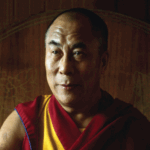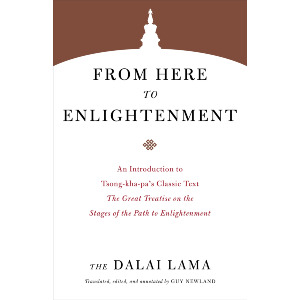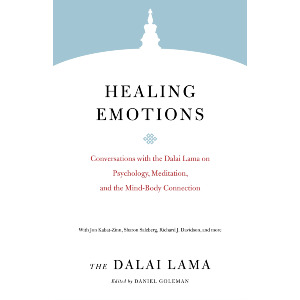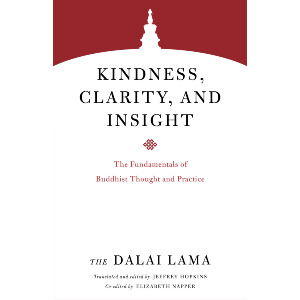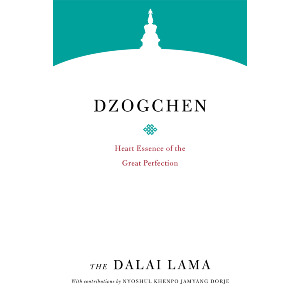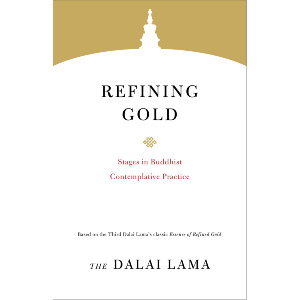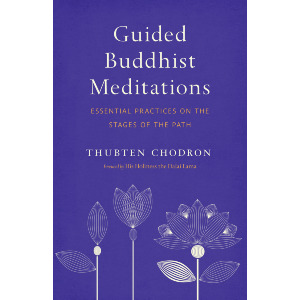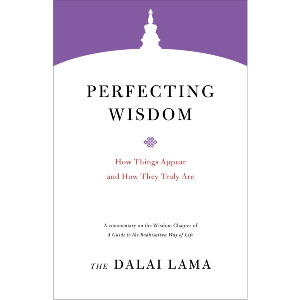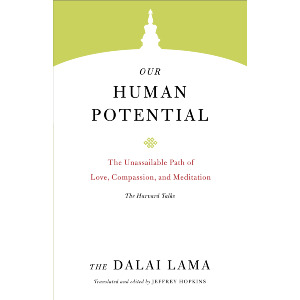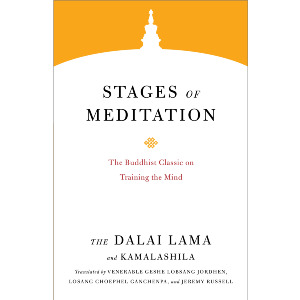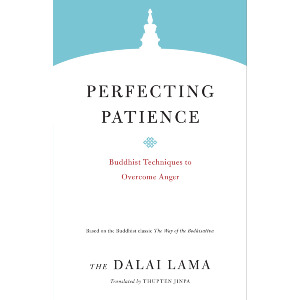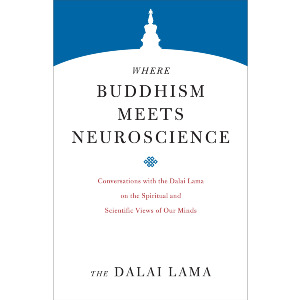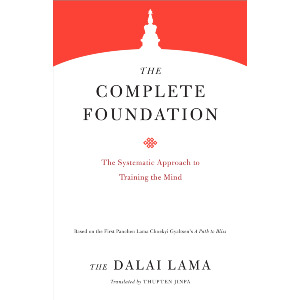 The Dalai Lama is particularly fond of a meditation that promotes taking responsibility for others’ well-being. Based on A Guide to the Bodhisattva Way of Life by the eighth-century Indian scholar yogi-poet Shantideva, he calls for imagining a three-sided scene. In meditation:
The Dalai Lama is particularly fond of a meditation that promotes taking responsibility for others’ well-being. Based on A Guide to the Bodhisattva Way of Life by the eighth-century Indian scholar yogi-poet Shantideva, he calls for imagining a three-sided scene. In meditation:
1. Imagine that you are your better, more relaxed, confident, and wise
self in the middle looking at two sides in front of you to your left
and right.
2. Then imagine your selfish self on one side: the person who, in a
pushy way, is trying to get an earlier flight, or a piece of cake, or
something like that—this person who’s just thinking of herself or
himself. Remember a recent incident or play-act a convincing
instance of your nasty, cruddy self, thinking, “I, I, I,” not your usual self,
but a nasty, self-serving version.
3. Across from your selfish self imagine a group of destitute persons—
poverty-stricken or in pain.
Thus, in the middle looking at the other two sides is your wise, discriminating self. You look out to one side where your cruddy, selfish self is, utilizing any of a variety of examples:
1. Remember an incident when you were whining in self-pity about your own welfare, putting yourself
totally, unreasonably ahead of everyone else. You were so wound up in your own thing that you
couldn’t notice somebody else’s concern. It’s awful. It’s ugly.
2. Or, remember a situation when you unreasonably carried on, got angry.
3. Or, remember an instance of feeling selfish desire: You’re in a store somewhere, you particularly
want some item, you’re getting overly fascinated with it.
4. Or, remember a time when you were greedily jealous. There’s always someone among your
acquaintances who makes more money for less work.
Then, on the other side, look at the group of destitute people. Sick. Living in poverty. Finding it difficult to get something to eat.
His Holiness asks the level-headed you in the middle to reflect on this fact: “The selfish I on one side and the destitute ones on the other side equally want happiness and don’t want suffering.” And then the question is: Whom will I help? My selfish self, or the destitute people? Just imagine it. As the wise one, you are asking yourself, “Which side am I going to help: the selfish one, groveling after her or his own welfare, or these destitute people?”
The only conclusion is: “There’s only one of me; others are infinite in number, exemplified by five or ten destitute people. How could the welfare of this infinitely larger group not be more important?”
In other circumstances, outside of such a graphic situation, it might seem that, in the abstract, self and other are equal: Self is one and other is one. They’re both singular. But when, aided by this visualization, you actually consider what “other” is, it’s composed of an incredible number of individual selves, individual I’s.
But still, you might consider that, even in this scenario, you assume that the motivations of the “other” side could be just as self-cherishing as your own, and thus you could find no real qualitative difference between self and other. You might then be inclined to help all equally—including your own nasty, self-cherishing self. It strikes me that this is perfectly fine, as long as your nasty self amounts to just one and does not equal “other” in terms of number, who, quantitatively, are hugely different. Thus, if you are considering five people on the “other” side, then you should consider yourself one-sixth, not half.
Or, you might get stuck wondering whether this contemplation calls for helping others and not helping yourself at all. It seems to me that the win-win solution is to put the main emphasis on helping others, making altruism the motivation of self-improvement. What is being targeted here is the feeling of oneself being so exaggeratedly important in the process of becoming happy. Everyone wants happiness and doesn’t want suffering.
Or, you think, “I am more important because I’m figuring this all out, and I’ll be able to pass it on to ones who don’t understand.” I have found it fun to let this type of pride just be, not try to oppose it, but to think, “Even this sense of self-importance is for the sake of others.” Think this over and over again, and pride, which usually serves to hide your inadequacies, disappears. The self-importance becomes hollow and fades. When I was interpreting for the Dalai Lama under the bright lights in front of large crowds, I found the situation brought a huge uplift in concentration—the communication of his message at that point depended on me. I enjoyed the challenge, enjoyed making myself inconspicuous but effective, enjoyed trying to make the task look effortless, enjoyed the open state of mind that I would need for adequate memory when he would talk for five minutes in Tibetan without break, enjoyed the interaction with him when, listening to my English, he would then repeat in Tibetan something I had missed. But I found that after leaving the stage, I longed to be back on it—the lights, the intensity, the attention. I found that it was getting so that I lusted after “the stage.” I recalled stories of actors who could not stand themselves except when onstage and knew I had to figure a way out of this. After a while, this is what came to me: “May these feelings of intensity and so forth go for the benefit of those who are listening.” I thought this over and over, and it worked. I no longer lusted for the situation, but I accomplished this not by forcing myself to not want it, but by realizing that the whole activity was for the sake of others and by deeply feeling this realization in imagination—imagining strength entering into the bodies and minds of the audience. Any type of pride can be handled in the same way.
There are a lot of little things that we can do for others as we go about the day. Provide a cushion for somebody in your meditation group who has difficulty finding a cushion to sit on. Little actions mean a great deal to others. When the Dalai Lama visited the University of British Columbia, he had a meeting with the dean and a group of professors including an aged man who had come in just for this meeting with His Holiness. He was sitting down. When His Holiness entered the room, he tried to get up, although His Holiness was not very near. The fellow, a thin, very old man, was trying to get up to show his respect. All of us saw the great difficulty that he had getting up—such that he might fall down—and we felt in our hearts for him. However, the only one who moved quickly to help him was the Dalai Lama, who took hold of him and helped him up. His Holiness wasn’t so full of himself as to think, “I’m here to receive these people.”
So, it’s the little things that count in valuing others. Making a decision to look to see how we can most effectively help those around us. With such a motivation, your activities have a true importance that is not self-centered. It’s difficult to decide how much to give away, how much time to devote to others, but the basic motivation is clear enough, and it itself, on a day-to-day basis, unties a lot of problems.
From A Truthful Heart: Buddhist Practices for Connecting with Others by Jeffrey Hopkins

